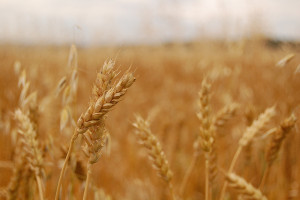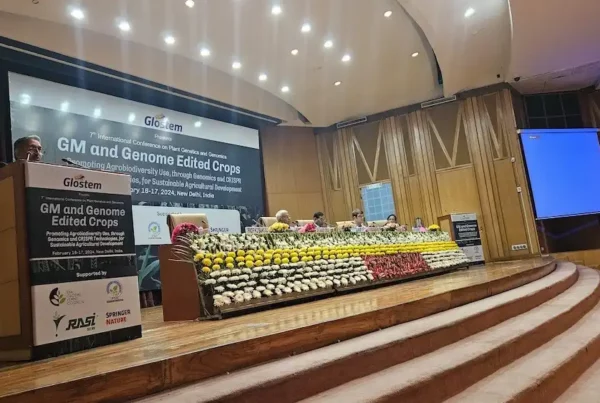The fifth report of the International Panel on Climate Change (IPCC) published last year announced that climate change is already negatively affecting our food supply and this problem is only going to be amplified in coming decades.
Our climate is projected to warm by 5ºC by 2050, with increased incidence of extreme weather events. Coinciding with this is a rapidly rising global population, predicted to reach 9.6 billion by 2050. Feeding all these extra mouths is challenge enough. Doing this under changing weather and climate conditions becomes even more difficult.
Food shortages resulting from population growth or unusual weather events can lead to rising food prices and political instability. A global rice shortage in 2008 saw prices rise by over 50%, resulting in riots in Asia and Africa. We might expect events such as this to become more common in the future as the food supply becomes more and more affected by climate change.
Not surprisingly food security is currently a buzz word in the research community, and many resources are being poured into trying to ensure a stable food supply for future generations.
Some climate skeptics argue that increases in carbon dioxide could boost plant growth, resulting in higher yielding plants under climate change. However, the reality is that any positive effect the increased CO2 could have on plant growth is likely to be outweighed by higher temperatures and extreme weather events.
Since the IPCC report there have been a number of studies focussed on the staple food crop wheat, and how yields could be affected in the future.

Wheat was first domesticated 10,000 years ago and is now grown more widely than any other crop. Photo by jayneandd used under CC BY 2.0.
Wheat yields are sensitive to temperature, and are predicted to fall by around 6% for every 1ºC rise in temperature. If we do not cut down current emissions, the earth could warm by 5ºC by 2050, equating to a 30% reduction in wheat yields due to temperature increases alone.
This 30% reduction in yield is only the tip of the iceberg. Yields could be further reduced by increased instances of disease epidemics. For example, Fusarium Ear Blight is a wheat disease that causes spikelet bleaching and enhanced senescence. A severe epidemic can wipe out 60% of a wheat crop. In order to take effect, the disease requires wet weather at flowering, something which we can expect to happen more often in the future according to climate models.
Extreme weather events, such as flooding, are predicted to increase over the coming decades, and will cause unavoidable crop losses. This will exacerbate problems with declining yields, further increasing the difficulty of feeding a growing population.
What can we do?
Primarily, we should be trying to limit the extent of climate change, and to do so we need to act now. Reducing emissions and moving to sustainable energy sources should be at the top of the agenda. However, most climate scientists agree that even if we act now to reduce our emissions, there will be at least 2ºC of warming, which is already impacting on food production.
We therefore need to make our food sources more resilient to climate change. In terms of wheat this means breeding varieties that are tolerant to higher temperatures and diseases. Additionally, we will need to adapt our farming methods, to be more intensive yet sustainable, and perhaps alter our diets.
Stress Resilience Forum, 23–25 October, Iguassu Falls, Brazil
In October the Global Plant Council, in collaboration with the Society of Experimental Biology, will bring together experts from around the world to discuss current research efforts in plant stress resilience. Abstract submission and registration for the Stress Resilience Forum is now open, and we welcome researchers at all levels to take part.
The meeting takes place immediately before the International Plant Molecular Biology Conference (25–30 October), also at Iguassu Falls, and which also includes several scientific sessions on plant stresses.








